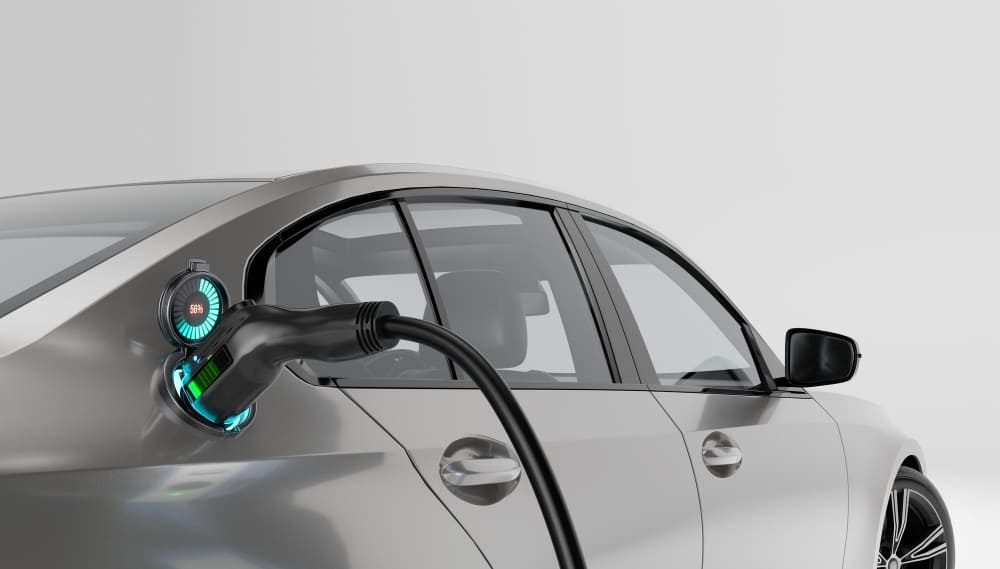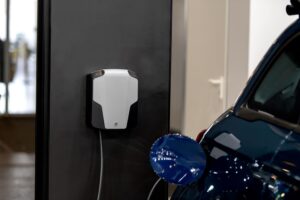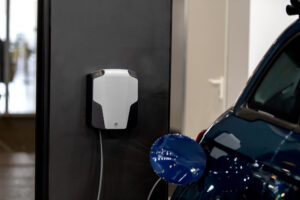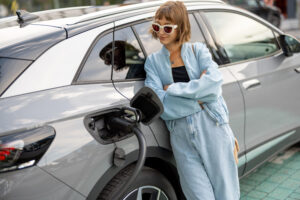As the demand for sustainable transportation grows, electric cars have emerged as the frontrunners, offering a greener alternative to traditional gasoline-powered vehicles. But have you ever wondered what metals are used in electric cars?
Join us on this electrifying journey as we explore the metals that drive the wheels of change in the automotive industry. From battery metals to other metals used to construct the electric car’s body, we’ll take a closer look at the essential elements that make the electric road trip a reality.
So fasten your seatbelts and read on!
Powering Up: How Precious Metals are Fueling the Electric Car Revolution
Discover how precious metals are driving the electric car revolution nowadays.
The Rise of Electric Cars

The rise of electric cars can be attributed to a combination of environmental concerns, technological advancements, government support, improved charging infrastructure, and shifted consumer preferences.
As these factors keep evolving, we can expect the electrification of transportation to accelerate, driving us toward a cleaner and more sustainable future.
The Role of Precious Metals in Electric Cars
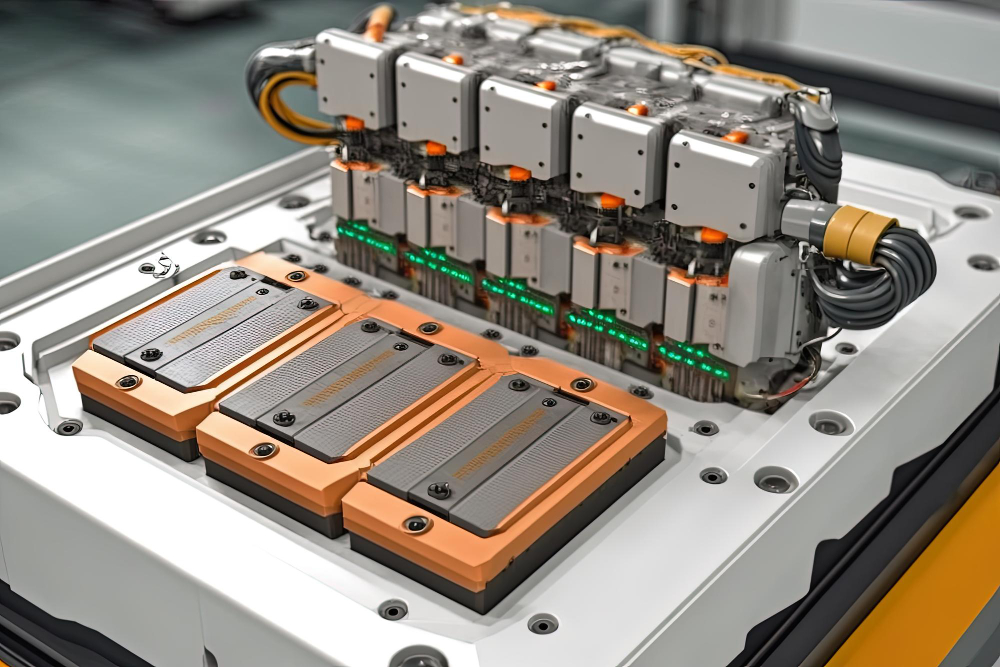
Precious metals in electric cars play crucial roles in the production and performance of these vehicles.
Several precious metals, such as lithium, cobalt, nickel, and manganese, are used in the battery technology that powers electric cars. These metals have unique properties ideal for energy storage and efficient power delivery.
For example, lithium is a key component in lithium-ion batteries commonly used in electric cars. It helps store and release electrical energy efficiently, allowing for longer driving ranges and faster charging times.
Meanwhile, cobalt is another important metal used in battery cathodes, contributing to the stability and durability of the battery.
The Future of Electric Cars
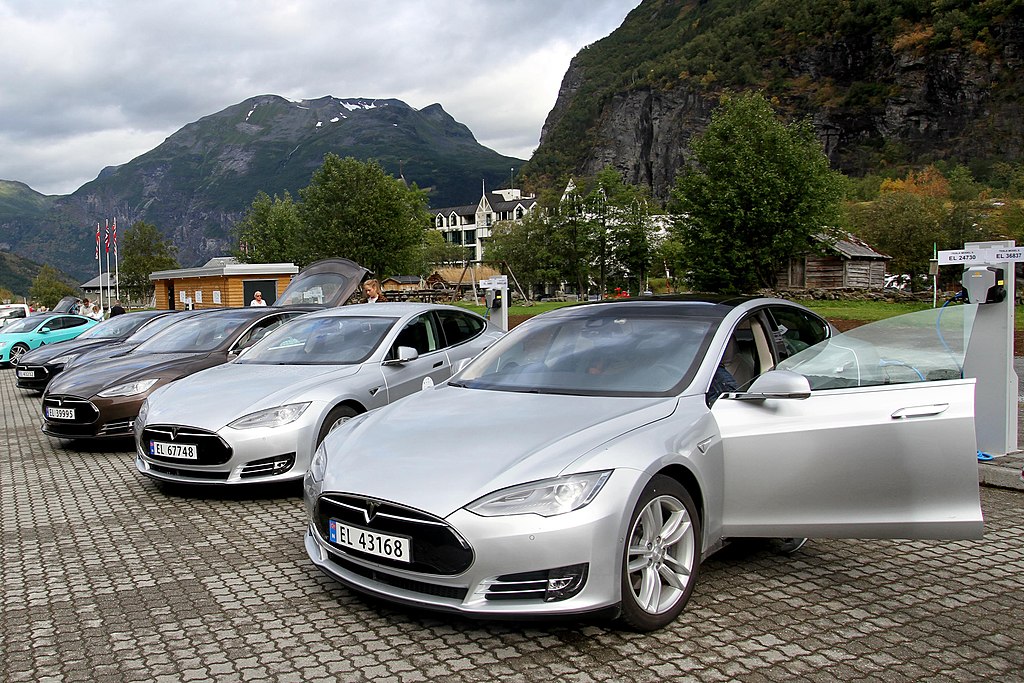
The future of electric cars is promising, driven by advancements in battery technology, increasing charging infrastructure, cost reduction efforts, environmental regulations, technological innovations, and diversification of electric vehicle offerings.
As these trends continue, electric vehicles are expected to become more mainstream, transforming the automotive industry and contributing to a cleaner and more sustainable transportation future.
What Metals are Used In Electric Cars Batteries
From gold to copper, here is the list of metals used in electric vehicle batteries.
Gold

While gold is known for its conductivity and corrosion resistance, it is not chosen as a primary material for battery production due to its high cost compared to other metals.
However, gold has limited applications in electronic components used in electric vehicles.
It is sometimes used as a plating material on connectors and contacts within the car’s electrical systems. Gold plating helps ensure reliable electrical conductivity and prevents corrosion, ensuring optimal performance and longevity of these components.
Silver

Silver is a great conductor of electricity, so it can efficiently transport electrical current within the battery system. This way, it ensures the smooth and efficient operation of the battery and maximizes its energy storage and delivery capabilities.
Another benefit of silver is its high thermal conductivity, making it an efficient heat dissipation for EV batteries to prevent overheating and maintain optimal performance.
Furthermore, silver is known for its exceptional corrosion resistance, helping to protect the internal battery components from degradation and enhancing its durability and lifespan.
However, it is important to note that using silver in electric car batteries is not widespread due to cost considerations.
Cobalt
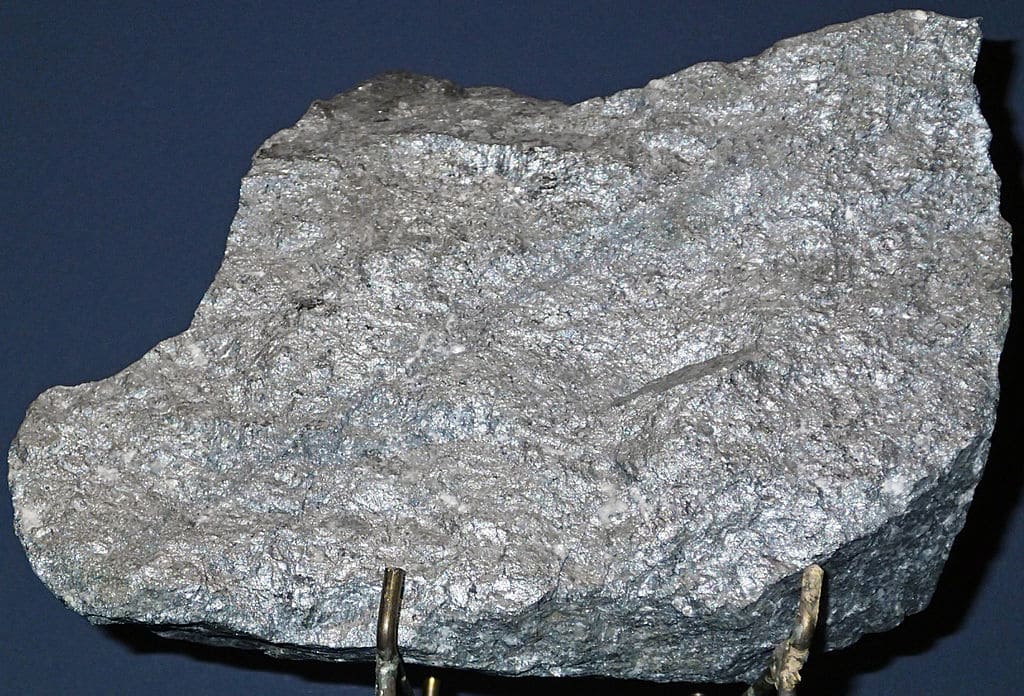
Cobalt continues to be an essential component in developing EV batteries, primarily due to its ability to increase battery stability and safety, store high energy density, improve battery life, and enhance overall performance.
However, while cobalt is valuable for EV batteries, it is important to note that there are concerns regarding its ethical sourcing and environmental impact of cobalt batteries.
Lithium
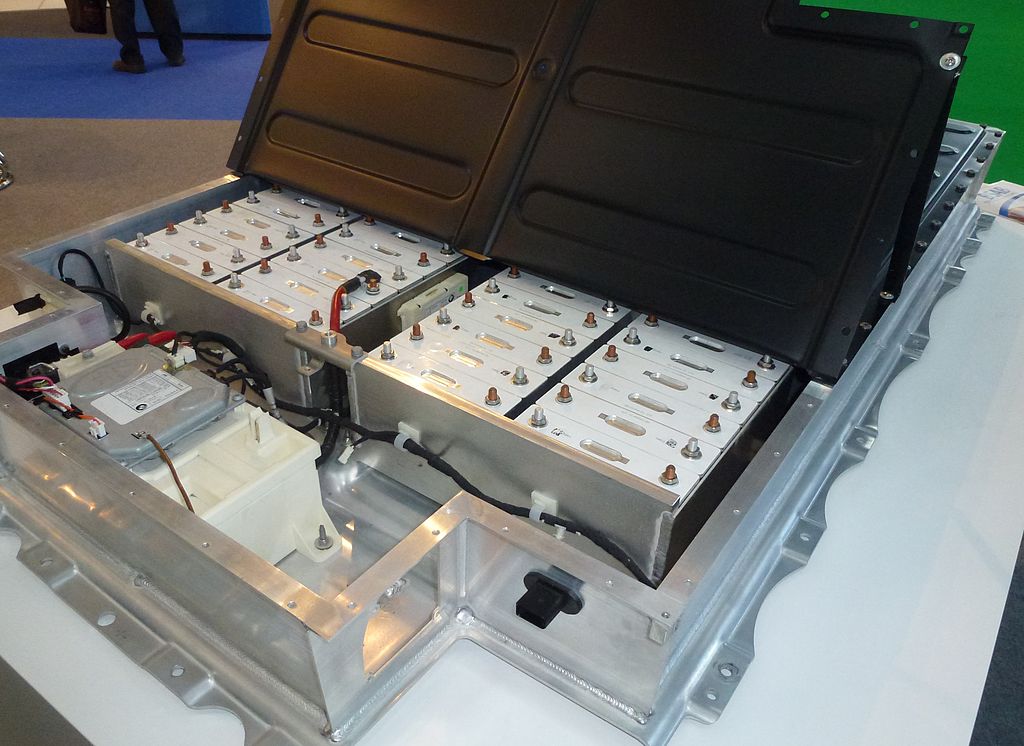
Lithium, the lightest metal on Earth, is the most common metal used in the EV battery industry. It has high energy density, lightweight nature, fast charging capability, long cycle life, high power output, and lower environmental impact.
Moreover, the stability of lithium batteries is suitable for EVs as they are less likely to explode or catch fire. Plus, they have a high voltage.
Besides being popular among EV battery manufacturers, lithium-ion batteries are also widely used for other electronic devices, such as laptops, digital cameras, and mobile phones.
Nickel
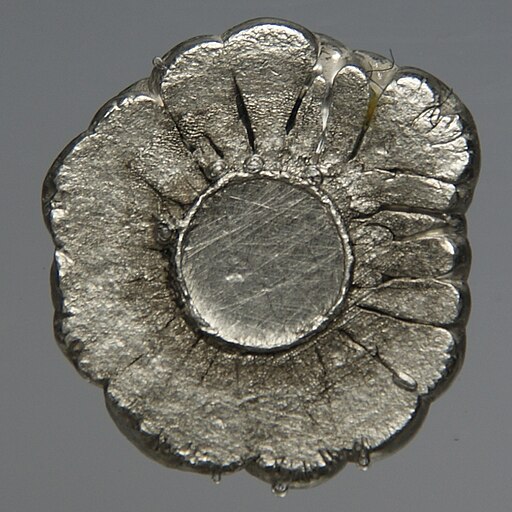
It is generally observed that nickel has been more affordable compared to lithium in recent years. This makes it a more affordable material for EV batteries.
Nickel enhances the performance and durability of EV batteries by increasing energy density, improving stability, and reducing costs.
Nickel-based batteries, such as nickel-cadmium (Ni-Cd), nickel-metal hydride (NiMH), and nickel-cobalt-aluminum (NCA) or nickel-manganese-cobalt (NMC) chemistries, are commonly used in EVs.
Its high energy storage capacity makes it an ideal choice for achieving longer driving ranges and faster charging times.
Aluminum
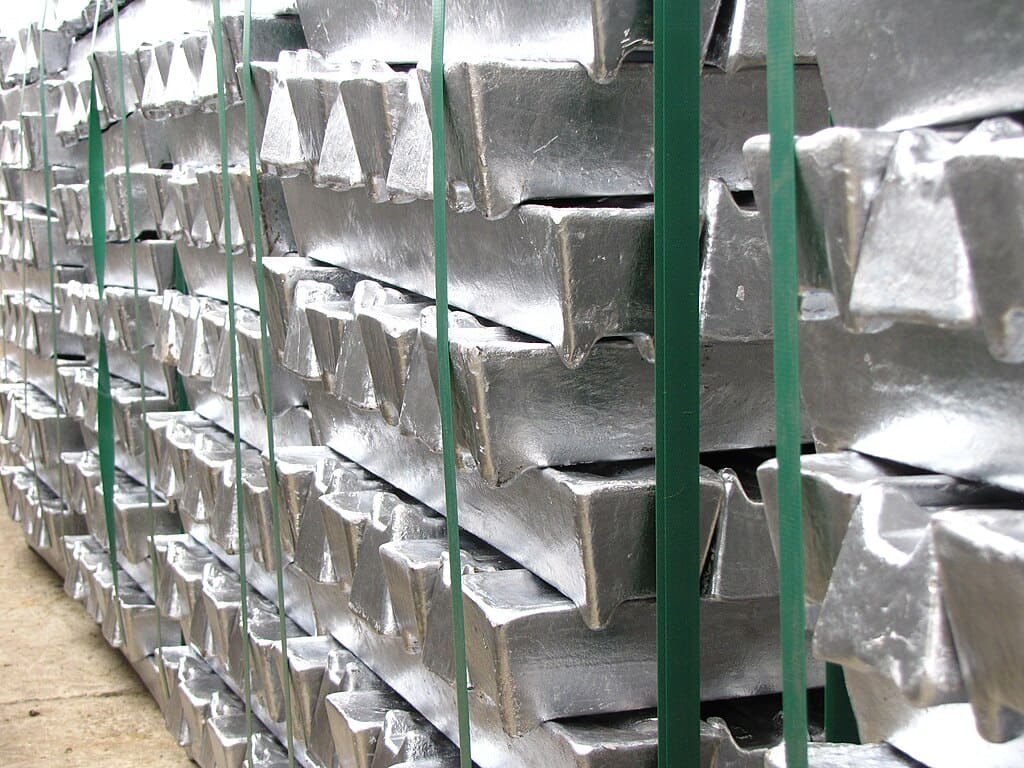
Aluminum is emerging as a promising material for EV batteries due to its lightweight nature, high energy density, and potential for fast charging. Its lightweight properties enable improved energy efficiency and extended driving range for EVs.
Moreover, aluminum’s high energy density allows for the storage of more energy in a smaller space, enhancing the overall battery performance. Its excellent conductivity also facilitates efficient ion movement within the battery, enabling faster charging times.
Additionally, aluminum is an abundant and cost-effective material, making it readily available for battery production. Plus, its high recyclability further enhances its sustainability.
Copper

Copper is a versatile and essential material used in various industries, including the production of EV batteries. It is chosen for its exceptional electrical conductivity, allowing for efficient transmission of current and minimizing energy loss during charging and discharging.
Additionally, copper’s high thermal conductivity helps dissipate heat generated by EV batteries, enhancing their performance and safety. Its durability, resistance to corrosion, and cost-effectiveness make it a preferred choice for manufacturers. Plus, it is highly recyclable, aligning with sustainable practices in the automotive industry.
Frequently Asked Questions
What are EV batteries made of?
An electric car battery consists of key components, such as a cathode (LiCoO2, LiNiMnCoO2, and others), anode (graphite), separator, electrolyte, and current collectors.
What metals are used in Tesla cars?
Tesla cars use a variety of metals in their construction and battery technology, including nickel, cobalt, aluminum, and lithium.
Is Tesla all aluminum?
The composition of Tesla vehicles varies depending on the model, with some models featuring a combination of aluminum and steel (Model S and Model X). The Model 3 specifically incorporates a blend of aluminum and high-strength steel.
Conclusion
In conclusion, there are various metals used in electric cars that play a unique and crucial role in creating these eco-friendly vehicles. The vast choices of lithium, copper, aluminum, nickel, cobalt, gold, silver, and other rare earth elements allow electric cars to be powerful, efficient, and sustainable.
With ongoing advancements and research, the future of electric cars looks promising.
Switch to electric cars now and see how they transform your daily mobility to be greener. Visit Kilowatt Cars now and find the best second hand electric vehicles for sale in Victoria and second-hand electric vehicles for sale in Melbourne!

